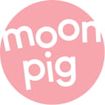Q&A with Katie
Shining a Light on Katie our Co-Chair of the LGBTQ+ Committee
1. How do you identify yourself?
Starting off with a tricky question! How I think about myself and my identity has changed a lot over the past few years, and in my experience my sexuality (or my perception of it) isn’t a constant, fixed thing, so sometimes labels can feel more restrictive than useful to me. But some level of categorisation also feels necessary to me to articulate my experience and relate to others, as well as represent and advocate for the LGBTQ+ community.I would identify as something under the bi+ umbrella, which is made up of several sexual identities that (in one way or another) aren’t attracted to a single gender, but there’s a lot under that umbrella and it can get a bit overwhelming. More often than not I just identify myself as queer. It feels like a simple way to say ‘not straight’ without having to get into a theoretical debate about the differences between various labels :)
2. Did you ever experience a ‘coming out’ scenario, where you felt you had to tell your peers/ parents etc, about how you identify yourself?
Since I figured out that I wasn’t straight, my main relationship has been with a man, so I haven’t been in the situation where I had to come out to everyone all at once. That, and the fact that I’m fairly ‘straight passing’, meant that there was less urgency around letting people know how I identify. Which I totally used as an excuse not to come out for a while. Because it’s scary!
But I eventually got to a point where it started to feel like a micro-aggression to constantly be labelled as straight. Like I wasn't being seen for who I was, even by my own community. And I think it's important for your own self-esteem to feel like you aren't compromising or hiding parts of yourself. I craved queer friends that I could talk to about feeling like that too.
So the only option was to be more upfront about who I am. I told close friends to begin with and gradually came out to more people the more comfortable I felt. Now I’m honest about my identity with any new people I meet too. If someone mis-labels me as straight, I respectfully correct them. And I’m much happier for it :)
However on the flip side, being ‘straight-passing’ means that I do have to ‘come out’ fairly regularly, because most people’s default assumption is that people are straight unless they tell you otherwise or fit into a stereotype of what we expect queer people to look like. I think this is an experience shared by a lot of queer people, and it can be pretty exhausting. But it’s something we’re all guilty of sometimes, because we’ve been conditioned into thinking of straight as the ‘norm’. To combat that subconscious bias in myself, I try to assume neutrality until I know better. It lowers the risk of me mislabelling someone’s sexual identity, but it’s also great for not assuming people’s gender/level of ability/religious beliefs/ethnicity/etc.
3. Have you ever faced any kind of discrimination based on how you choose to identify yourself? If so, how did you overcome this? Any advice on how to handle a difficult situation such as that?
I have yea, and interestingly it’s come from both straight people and from within the LGBTQ+ community. I’ve experienced a lot of invalidation of my identity from both communities. I’ve been told that I’m just ‘greedy’, that I’m confused, that I’m bi+ for attention, that I should pick a side. There’s a weird misconception out there that bi+ people are more promiscuous and less likely to be faithful in a relationship, which is obviously rubbish. I’ve also been turned away from LGBTQ+ spaces, presumably because I didn’t look ‘queer enough’.
Thankfully I’ve never experienced discrimination that has made me feel physically unsafe, as too many LGBTQ+ people have, but I think it’s important to shed light on insidious forms of discrimination too, like the examples of bi+ antagonism (or biphobia) above. It added another layer of complexity and shame to my journey to figure out who I am and where I fit. It made me discriminate against myself. It made me feel isolated from both straight and LGBTQ+ communities.
The thing that helped me overcome those feelings the most is finding more queer friends who accept me for who I am, because they helped me further my self-acceptance and find pride in my identity. So my advice to anyone who is struggling is to try not to let other people’s narrow views define how you feel about yourself. Find books/tv shows/films with positive representations of people like you. Know that you’re valid and that you have a place in the community. And finally to bite the bullet and get yourself out there and find your people! For every person who rejects or invalidates you, there are tens more potential friends who will support and champion you as you are :)
4. Lots is being done to make workplaces/ recreational spaces/ schools etc more inclusive but there’s certainly a long way to go. What are the top three changes you would like to see?
More neutrality in language - Like I mentioned in Q2, making a bit of an effort to make our language habits more neutral would have a positive impact on all areas of inclusivity, not just LGBTQ+ inclusivity. It’s more a change that I’d like to see in people generally rather than in any specific space, but it would contribute to making shared spaces feel safer for all people, regardless of their differences. And, specifically in workplaces and schools, if defaulting to neutral language means that people from minority groups would experience fewer micro-aggressions day to day, I can only imagine that they would be happier and more productive people in those spaces too.
More active allyship - I would like to see more actions and less words. It’s easy for spaces to say that they are trying to be more inclusive, but what demonstrable action are they taking? It’s not enough to hang a Pride flag once a year - I want to see what you’re doing to tackle wage disparity, or how you’re tackling systemic discrimination by scrutinising and updating your processes. And I’d like to see more actively listening to minority groups’ concerns, rather than making inclusivity changes that are based on assumptions.
Foster safe spaces - In making changes to be more inclusive we have to acknowledge that we aren’t there yet, so holding space where people can go and not feel like the minority is important.
5. Is there anything in particular that you will be doing for pride this year?
I’m going to be pretty busy getting involved with all the amazing Pride events that the LGBTQ+ Committee have planned for this month! We’re hosting online discussions, a virtual movie night, a LGBTQ+ book club, and a makeup masterclass with a drag queen. But I think the event I’m most looking forward to is the Committee’s first in-person social. We were founded during lockdown so we haven’t had chance to meet up in person yet. We’ll be keeping it small and having drinks outside to be safe, but it’ll be really nice just to raise a drink together for Pride!
6. Outside of work committees are there any other organisations or groups that you are a part of that supports LGBTQ+ rights? Is there anything you would recommend getting involved in?
Well I try not to be online too much in the evenings and there hasn’t been much going on in-person due to lockdown… Buuut I plan to volunteer with akt, a local LGBTQ+ youth homelessness organisation (www.akt.org.uk), as soon as their volunteer programme reopens. Nearly a quarter of homeless young people identify as LGBTQ+ and once homeless, they are more likely to face violence and discrimination than young people who aren’t LGBTQ+. Those stats break my heart and I’d like to help those young people in some small way.
I also try to go along and support Sparkle (www.sparkle.org.uk), whenever they are running local protests/events as trans rights are sorely overlooked at the moment and, despite being the national trans charity, they don’t receive any government funding so rely on community support. Trans rights have been and continue to be threatened and undermined in the current political climate and I think it’s important to use my cis privilige to amplify trans voices.
The LGBT Foundation (https://lgbt.foundation/) is a great resource for advice, support and information, and has a volunteering/training section with some great opportunities.
If you are interested on how to be a good ally, read our tips here

Engineer

